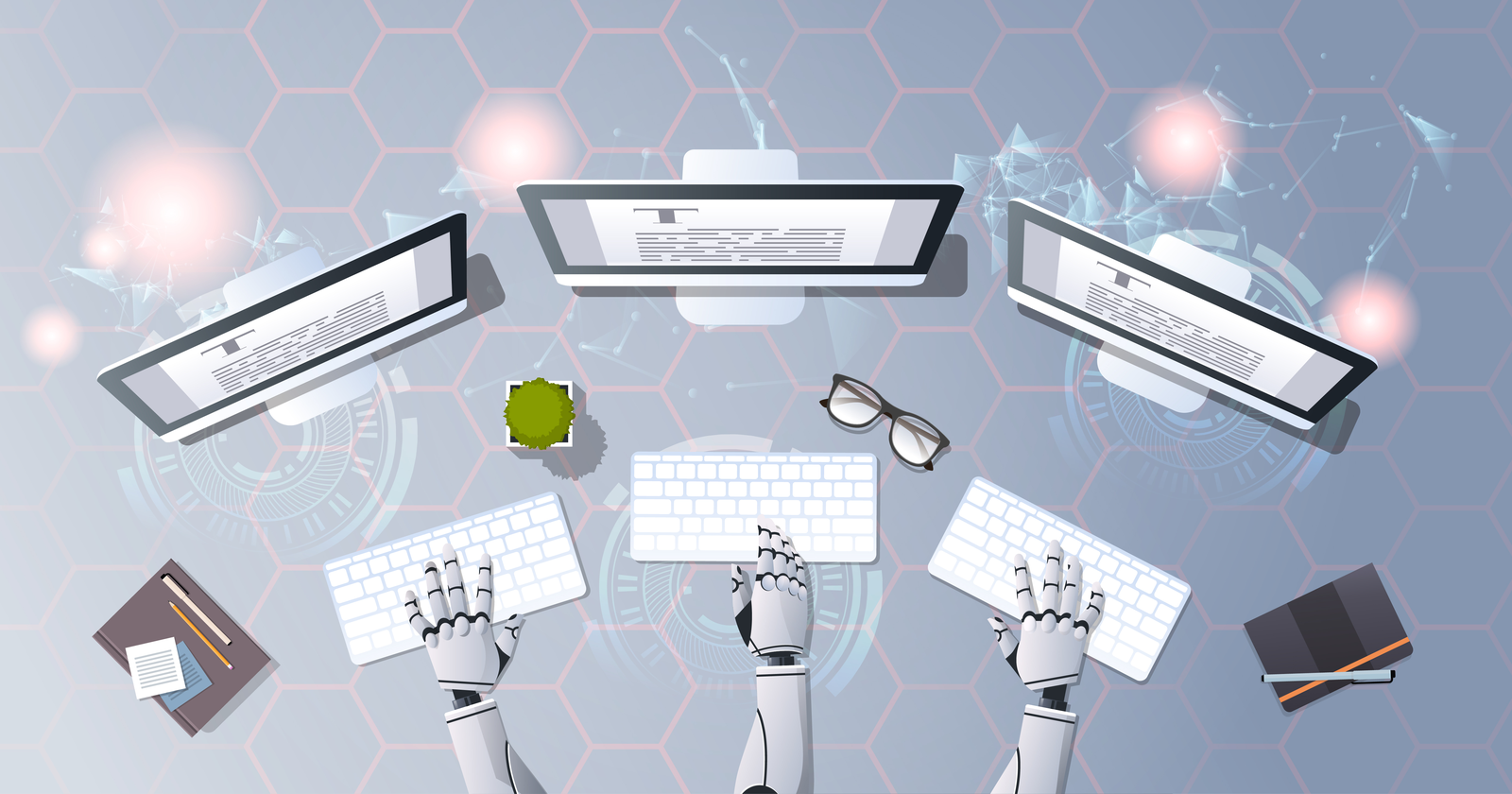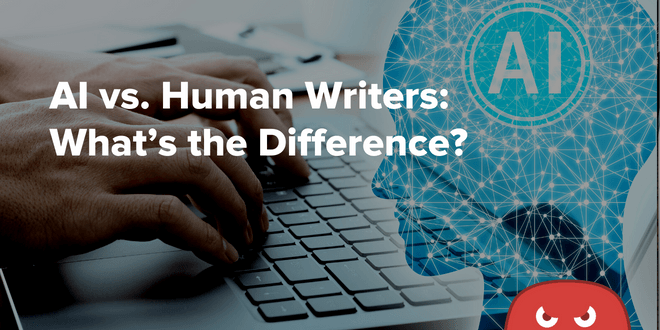AI content writing tools offer speed and consistency, while human writers bring creativity and nuance. Each has unique advantages in content creation.
AI content writing tools have revolutionized the way content is generated. They provide rapid turnaround times and maintain consistent quality. These tools can analyze vast amounts of data, ensuring content is optimized for SEO. Human writers, on the other hand, excel in creativity and emotional depth.
They understand context, cultural nuances, and can craft stories that resonate. While AI can generate bulk content efficiently, humans add a personal touch that engages readers. Choosing between them depends on specific needs, whether you prioritize speed and volume or creativity and connection. Both have their place in modern content strategies.

Capabilities Of Ai Tools
AI tools have revolutionized content creation. They offer unique capabilities that enhance productivity and consistency. These tools can generate content quickly and maintain a consistent tone throughout.
Content Generation Speed
AI tools excel in content generation speed. They can produce articles in minutes. This rapid production is ideal for tight deadlines. AI tools can handle large volumes of content effortlessly. They ensure that your content calendar stays on track.
For example:
- Generating blog posts
- Creating social media content
- Writing product descriptions
Consistency And Tone
Maintaining a consistent tone can be challenging for human writers. AI tools ensure consistency in tone and style. They follow predefined guidelines without deviation. This consistency enhances brand voice and readability.
Benefits include:
- Uniform style across all content
- Adherence to brand guidelines
- Reduced need for extensive editing
AI tools can mimic different writing styles. They can adapt to various content needs, ensuring the message remains clear and engaging.
Strengths Of Human Writers
In the debate of AI content writing tools vs human writers, human strengths are unique. These strengths often set them apart from AI. This section will explore two key areas: creativity and originality, and emotional connection.
Creativity And Originality
Human writers excel in creativity. They bring fresh, unique ideas to the table. Humans can think outside the box. They can create content that’s never been seen before.
AI tools rely on data and patterns. They often produce content that feels repetitive. Human writers use their experiences and imagination. This ensures content is original and engaging.
Let’s look at a quick comparison:
| Aspect | AI Content Writing Tool | Human Writer |
|---|---|---|
| Creativity | Limited by data | Boundless |
| Originality | Pattern-based | Unique and fresh |
Emotional Connection
Human writers can create an emotional connection with readers. They understand emotions and can convey them effectively. This ability makes content relatable and impactful.
AI tools lack true understanding of human emotions. Their content often feels mechanical. Human writers use empathy to reach readers’ hearts. This helps in building a loyal audience.
Here are some key points:
- Humans understand context and emotions.
- Humans can adapt tone and style to fit the audience.
- Humans can tell stories that resonate deeply.
Emotional connection is crucial for meaningful content. This is where human writers truly shine.
Cost Analysis
Comparing the costs of AI content writing tools and human writers is crucial. This analysis helps businesses decide on the best option for their needs. Both AI tools and human writers have unique costs associated with them. Let’s dive into the details.
Expense Of Ai Tools
AI content writing tools come with various pricing models. Some tools charge a monthly subscription fee. Others might offer a pay-per-use model. Here is a breakdown of common expenses associated with AI tools:
- Monthly Subscription: Ranges from $20 to $500 per month.
- Pay-Per-Use: Costs can be around $0.01 to $0.10 per word.
- Training and Setup: Initial setup might cost an additional fee.
Some popular AI tools include Jasper, Copy.ai, and Writesonic. They offer different pricing tiers based on features and usage limits.
Salary And Fees For Writers
Human writers can be freelancers, in-house writers, or agency-based. Their costs vary based on experience, expertise, and location. Here’s a general outline of the costs:
| Type of Writer | Average Cost |
|---|---|
| Freelance Writer | $0.05 to $0.50 per word |
| In-House Writer | $3,000 to $7,000 per month |
| Agency Writer | $100 to $300 per hour |
Freelance writers often offer flexibility and a wide range of skills. In-house writers provide consistent quality and alignment with brand voice. Agencies bring expertise but at a higher cost.
Evaluating the costs of both options helps make an informed decision. Businesses must weigh the pros and cons of each to determine the best fit.
Flexibility And Adaptability
Comparing AI content writing tools and human writers, flexibility and adaptability are vital. Both have their unique strengths. They each respond differently to changes and challenges. Let’s delve into this fascinating comparison.
Ai’s Learning Curve
AI writing tools learn from vast amounts of data. They can analyze trends quickly. AI adapts to new information with speed. This makes AI tools great for consistent content production. They can adjust to different writing styles. AI can also handle multiple languages. However, AI lacks creativity and emotional depth.
Here’s a quick look at AI’s strengths and limitations:
| Strengths | Limitations |
|---|---|
| Fast learning from data | Lacks creativity |
| Consistent content production | Emotionless writing |
| Adapts to multiple languages | Limited context understanding |
Human Adaptation To Trends
Human writers excel at understanding trends. They can sense shifts in reader preferences. Humans bring creativity and emotional depth to writing. They can create content that resonates deeply with audiences. Writers can adapt to new trends and styles. They can also inject humor and personality into their work.
Here are some key strengths of human writers:
- Creative and emotional writing
- Deep understanding of context
- Ability to inject humor
- Adaptable to emerging trends
Humans can also tackle complex topics. They can write with nuance and detail. This makes human writers irreplaceable for many tasks.
Quality And Accuracy
The debate between AI content writing tools and human writers often centers on quality and accuracy. Both have their strengths and weaknesses. Let’s delve into these aspects through specific criteria.
Grammar And Syntax
AI tools excel in grammar and syntax. They follow language rules strictly. They rarely misspell words or use incorrect punctuation.
Human writers bring creativity to the table. They can craft nuanced sentences. This often leads to richer, more engaging content.
Here’s a quick comparison:
| Aspect | AI Tools | Human Writers |
|---|---|---|
| Grammar | Consistently correct | Sometimes errors |
| Syntax | Always follows rules | Flexible, creative |
| Creativity | Limited | High |
Fact-checking
Fact-checking is crucial for content accuracy. AI tools can retrieve data quickly. They scan multiple sources in seconds. But they may not always verify the credibility of those sources.
Human writers take a more thorough approach. They analyze sources deeply. They can identify trustworthy information.
Consider this comparison:
- AI Tools:
- Quick data retrieval
- Limited source verification
- Human Writers:
- Thorough analysis
- Better source credibility
Both AI tools and human writers have their pros and cons. The choice depends on specific needs.

Ethical Considerations
When comparing AI content writing tools and human writers, ethical considerations are crucial. These tools and writers have different impacts on ethics, which can affect the quality and integrity of the content. Understanding these ethical aspects helps make better choices.
Plagiarism Concerns
AI content writing tools can generate text quickly. But, they sometimes use existing content without proper attribution. This can lead to plagiarism issues. It is important to check AI-generated content for originality. Human writers, on the other hand, create content based on their own knowledge and research. They usually ensure proper citations and references.
Here is a comparison table of plagiarism concerns:
| AI Content Writing Tool | Human Writer |
|---|---|
| High risk of plagiarism | Low risk of plagiarism |
| Requires additional checks for originality | Usually provides proper citations |
Bias And Fairness
AI tools often rely on existing data to generate content. This data can sometimes be biased, leading to unfair or unbalanced information. AI tools might not always detect or correct these biases.
Human writers can be more aware of bias and strive for fairness. They can critically assess information and ensure balanced perspectives. They can also address sensitive topics with empathy and understanding.
- AI tools may unintentionally spread biased information.
- Human writers can provide more nuanced and fair content.
Ensuring ethical content is key in maintaining credibility and trust with your audience.
Future Of Content Creation
The future of content creation is an exciting field. It combines technology and human creativity. With advancements in AI, content writing tools have evolved. They now produce high-quality content. But, human writers still hold a unique place. They bring creativity and emotion to the table.
Advancements In Ai
AI content writing tools have made significant progress. They use machine learning and natural language processing. These tools can write articles, blogs, and reports.
- Generate content quickly
- Improve over time
- Reduce costs
- Maintain consistency
AI tools can analyze vast amounts of data. They identify patterns and trends. This helps in creating relevant and engaging content. AI-generated content can also be personalized. It meets the specific needs of the audience.
Despite these benefits, AI tools have limitations. They lack human touch and creativity. They may struggle with complex topics. Humor and emotion are also challenging for AI.
Evolving Role Of Writers
Human writers play a crucial role in content creation. They bring creativity, empathy, and emotional intelligence. These are traits that AI cannot replicate. Writers can create stories that resonate with readers.
As AI tools advance, writers’ roles evolve. They now focus on higher-level tasks. These include:
- Strategic content planning
- Creative storytelling
- Editing and refining AI-generated content
- Adding a personal touch
Human writers can also collaborate with AI. This leads to better content. AI handles repetitive tasks. Writers focus on creativity and quality. This synergy results in engaging and informative content.
The future of content creation is promising. It involves a blend of AI and human skills. AI tools will continue to improve. Human writers will adapt and thrive. Together, they will shape the future of content.

Frequently Asked Questions
Can You Tell The Difference Between Ai Writing And Human Writing?
Yes, you can often tell the difference. Human writing feels more natural and emotional. AI writing may lack nuance and creativity.
Is Ai Writing Better Than Human?
AI writing can be faster and consistent, but human writing excels in creativity and emotional connection. Both have their strengths.
What Is The Difference Between Ai Content And Human Content?
AI content is generated by algorithms, often lacking emotional depth. Human content reflects personal experiences and creativity.
Will Ai Writing Tools Replace Human Writers?
AI writing tools assist human writers, but won’t replace them. Human creativity, emotion, and nuance remain unmatched. Writers adapt and evolve.
Conclusion
Choosing between an AI content writing tool and a human writer depends on your needs. AI tools offer speed and cost efficiency. Human writers provide creativity and nuanced understanding. Both have unique strengths. Evaluate your project requirements to make an informed decision.
Balancing both can often yield the best results.



